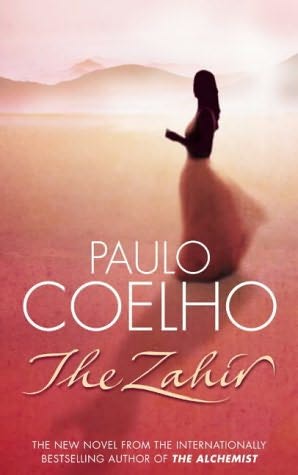
"God knows that we are all artists of life. One day, he gives us a hammer with which to make sculptures, another day he gives us brushes and paints with which to make a picture, or paper and a pencil to write with. But you cannot make a painting with a hammer, or a sculpture with a paintbrush. Therefore, however difficult it may be, I must accept today's small blessings, even if they seem like curses because I am suffering and it's a beautiful day, the sun is shining, and the children are singing in the street. This is the only way I will manage to leave my pain behind and rebuild my life."
I have been a faithful fan of Paulo Coehlo since first being introduced to The Alchemist in Honduras. This book doesn't always turn the page on its own like the Alchemist. Poor Coehlo, every other book he writes will always be compared to it. Regardless, I have to say I admire his honesty. Anytime a writer more than loosely bases a character on himself, he risks showing the bad side of himself that no one wants to admit exists. The pride the main character has as a famous author is fascinating.
"I explain that our human condition makes us tend to share only the best of ourselves, because we are always searching for love and approval," he says to a crowd of listeners while dealing with this exact problem in his personal life.
The storyline follows a man who has everything he wants or needs as a well-known published author. His wife, a foreign correspondent, decides to leave him without telling him where she is going or that she is leaving. After a long journey of finding himself, he finds her.
At first he feels free. But that quickly changes as his desire to find his wife becomes his ZAHIR.
"I had lunch with a friend who just got divorced. 'Now I can enjoy the freedom I've always dreamed of having.' But that's a lie. No one wants that kind of freedom: we all want commitment, we all want someone to be beside us to enjoy the beauties..."
There is a great section near the end of the book where the author talks about what he must do when he goes to a famous-people dinner. The questions he has to ask, the annoyances he must sit through.
The first part moves slowly, but the end turns its own pages.
